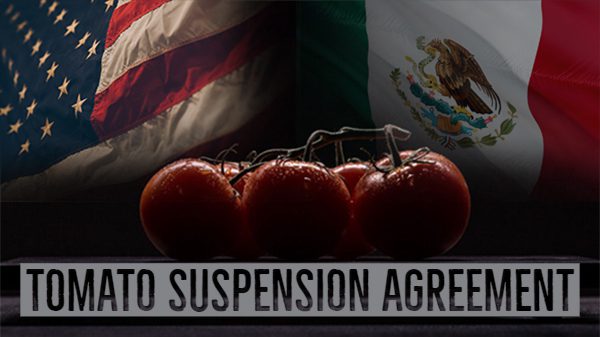MAITLAND, FL – April 19, 2024: This week, in response to a lawsuit by a large Mexican tomato exporter, the U.S. Court of International Trade remanded a 2019 decision to the Department of Commerce, which had determined Mexican tomatoes were being dumped in the U.S. market.
Importantly, this decision didn’t invalidate the fact that dumping took place but was a procedural decision that said the Commerce Department should have used a different timeframe in determining the levels of dumping. The decision doesn’t have any effect on the 2019 Suspension Agreement or the pending request by the U.S. tomato industry to terminate the Suspension Agreement due to its ineffectiveness.
“This is nothing more than a litigation tactic to delay the consequences of Mexican unfair trade practices that have been devastating the U.S. tomato industry for decades,” said Michael Schadler, Executive Vice President of the Florida Tomato Exchange BB #:162441.
“Whatever data the Commerce Department uses, the record is clear: Mexican tomatoes have been consistently dumped in the U.S. market over the last 30 years. The record is also clear that none of the Suspension Agreements have worked.”
Background
In 2019, the Department of Commerce resumed its long suspended antidumping investigation of Mexican tomato imports. The original investigation was suspended in 1996 by a series of “suspension agreements,” which allowed the Mexican industry to avoid antidumping duties in exchange for certain rules meant to protect U.S. growers from Mexican dumping. The Commerce Department reopened the investigation at the request of a coalition of U.S. tomato growers, led by the Florida Tomato Exchange.
The original 1996 investigation preliminarily found dumping margins as high as 188.45%, and an average rate of 17.56%, but the investigation was suspended before a final determination was made. The 2019 investigation, which used updated import data, found that Mexican producers were dumping tomatoes in the U.S. by margins of up to 30.48%, and an average rate of 20.91%.
This proved that dumping continued, even with suspension agreements in place – agreements that were supposed to prevent such dumping.
The completion of the investigation in 2019, and a subsequent ruling from the International Trade Commission that affirmed threat of injury to U.S. tomato growers, paved the way for antidumping duties to be imposed if the current suspension agreement were to end.
Indeed, that’s what an overwhelming number of American tomato growers asked the Commerce Department to do in June 2023. That request to terminate the suspension agreement was supported by over 60 members of Congress from 11 different states, as well as the American Farm Bureau Federation. A decision on that request has not yet been made.
With the chances of antidumping duties significantly increased, one of Mexico’s largest tomato growers and exporters, Bioparques de Occidente, S.A. de CV, sued the Commerce Department, arguing that the resumed 2019 investigation should have used original data from 1996 rather than using the most recent trade data.
What’s Next?
The Court has ordered the Commerce Department to redo its 2019 dumping investigation by using data from the original 1996 case. Commerce has until August to make the revisions, but that deadline could be extended.
“We are confident that the results will be similar no matter what timeframe is used,” stated Schadler. “Unfortunately, the one thing that has been consistent since 1996 is Mexican dumping. The Court’s decision means that American tomato farmers may have to wait even longer for U.S. trade laws to stop injurious Mexican dumping.”
About the Florida Tomato Exchange:
The member companies of the Florida Tomato Exchange produce over 90 percent of the tomatoes grown in Florida and are among the largest producers of tomatoes in California, Georgia, New Jersey, North Carolina, South Carolina, Tennessee, and Virginia. FTE member companies produce approximately 50 percent of the fresh-market tomatoes grown in the U.S. www.FloridaTomatoExchange.com
Contact:
Michael Schadler
Executive Vice President
Florida Tomato Exchange
(407) 660-1949
michael@FloridaTomatoExchange.com



